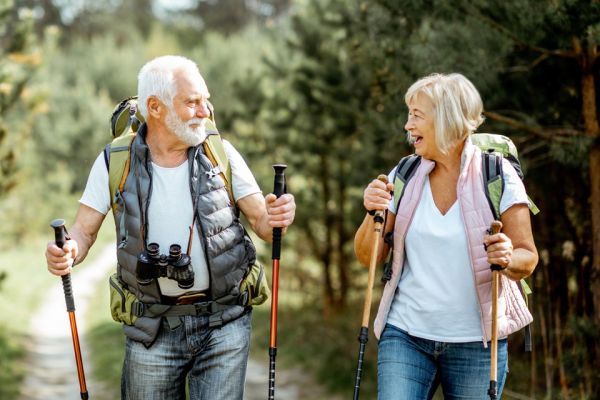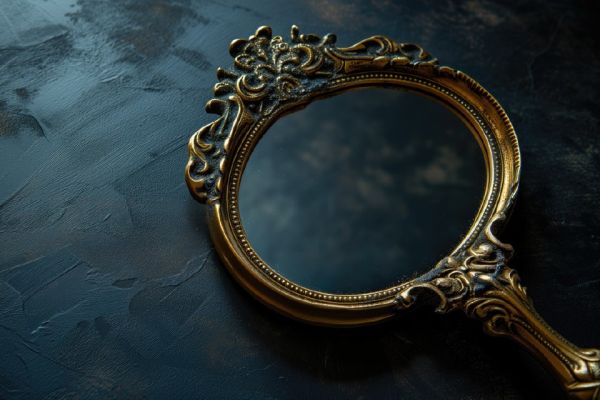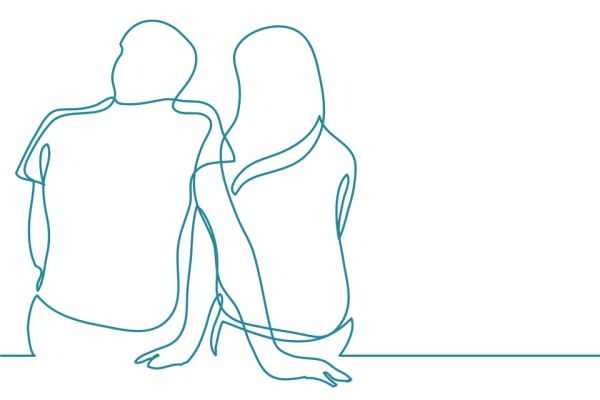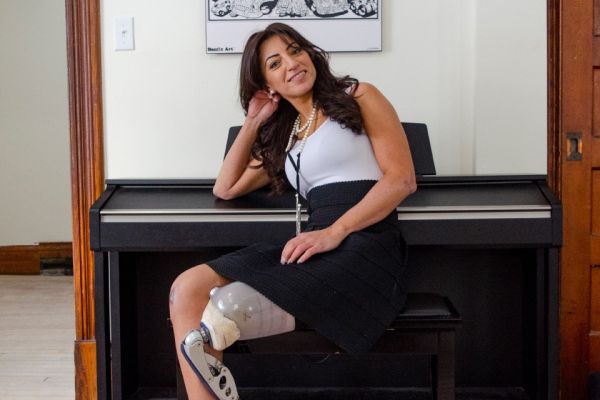To My Younger Self
Author: Max Warfield

Amputees share lessons learned and advice they would've given themselves, knowing now what they didn't early in their journey of recovery.
For Stelly’s Secondary School student Andrea Swallow, a shy, blond-haired girl growing up in Victoria, British Columbia, possibilities in life were boundless. As a Stelly’s Stinger, she immersed herself in running and dreamed of working with animals. Significant life decisions were on the sixteen-year-old’s horizon.
Schooling and career choices pressed upon Andrea heavily when she felt overwhelmed and underprepared to deal with them. She experienced angst from the usual teen grief - like the anguish of both real and imagined parental pressure to succeed, fear of being judged, desire to look good and fit in socially, pressure to drink or do reckless things to be popular, and of course, the dread of embarrassing situations.
All the while, her social, athletic and academic endeavours felt terribly competitive. Life felt so daunting and dramatic. Then she became an amputee, a survivor of a motorcycle accident.
Schooling and career choices pressed upon Andrea heavily when she felt overwhelmed and underprepared to deal with them. She experienced angst from the usual teen grief - like the anguish of both real and imagined parental pressure to succeed, fear of being judged, desire to look good and fit in socially, pressure to drink or do reckless things to be popular, and of course, the dread of embarrassing situations.
All the while, her social, athletic and academic endeavours felt terribly competitive. Life felt so daunting and dramatic. Then she became an amputee, a survivor of a motorcycle accident.
The pressure went from a stone in her shoe to a slab of granite the size of Squamish’s Stawamus Chief pressing upon her shoulders.
Decades later, Andrea lives a happy life enjoying beautiful B.C. She loves being a mom, works at the local secondary school, volunteers, runs. An above-the-knee amputee, she is the National Peer Visitor Coordinator for the Amputee Coalition of Canada and busy as an advocate with Amp Unity Canada and various amputee support groups that provide volunteer peer visitation.
She is doing great. She navigated the minefields of young adulthood as a relatively new amputee. When recently asked, “If it were possible, what would you tell your younger amputee self?”… a litany of thoughts flooded her mind.
“I would say,” she starts, “the world can be unkind to those who look ‘different’ and being on the receiving end of such unfairness will sometimes cut deeply and knock you down — but be reassured, it has absolutely no relation to who you are. You decide who you are. Imperfection is what is so captivatingly beautiful about this world and all it encompasses."
She pauses. “What I wish I had known? I wish I had known that there are many ways that trauma impacts our body and mind. The way that it alters your sense of being, your nervous system, emotional responses, the way you communicate, and how you navigate and perceive the world around you.”
When led to the topic of adversity Andrea responded with a reminder to herself that adversity has the capability to bring both despair and joy, liabilities and assets, misfortune and gifts. “Healing requires us to feel all emotions, including the difficult ones. The more it unfolds and the less you avoid it, the more you diminish the fear and negativity and encourage self-acceptance and growth."
She is doing great. She navigated the minefields of young adulthood as a relatively new amputee. When recently asked, “If it were possible, what would you tell your younger amputee self?”… a litany of thoughts flooded her mind.
“I would say,” she starts, “the world can be unkind to those who look ‘different’ and being on the receiving end of such unfairness will sometimes cut deeply and knock you down — but be reassured, it has absolutely no relation to who you are. You decide who you are. Imperfection is what is so captivatingly beautiful about this world and all it encompasses."
She pauses. “What I wish I had known? I wish I had known that there are many ways that trauma impacts our body and mind. The way that it alters your sense of being, your nervous system, emotional responses, the way you communicate, and how you navigate and perceive the world around you.”
When led to the topic of adversity Andrea responded with a reminder to herself that adversity has the capability to bring both despair and joy, liabilities and assets, misfortune and gifts. “Healing requires us to feel all emotions, including the difficult ones. The more it unfolds and the less you avoid it, the more you diminish the fear and negativity and encourage self-acceptance and growth."
"Resiliency is a double-edged sword, a true asset and an incredible life skill, but acquired through hardship unfortunately.”
Experienced amputees can offer new perspectives. What they would tell their younger amputee selves after years down the road is so valuable for others to hear, to understand and in which to find comfort, trust and hope. The road to recovery can be a journey without end. But it need not be laden with pitfalls and surprises only. It can be spectacular too. So say many who are seasoned travelers, pioneers and peers, on that pathway.











 How to resolve AdBlock issue?
How to resolve AdBlock issue?